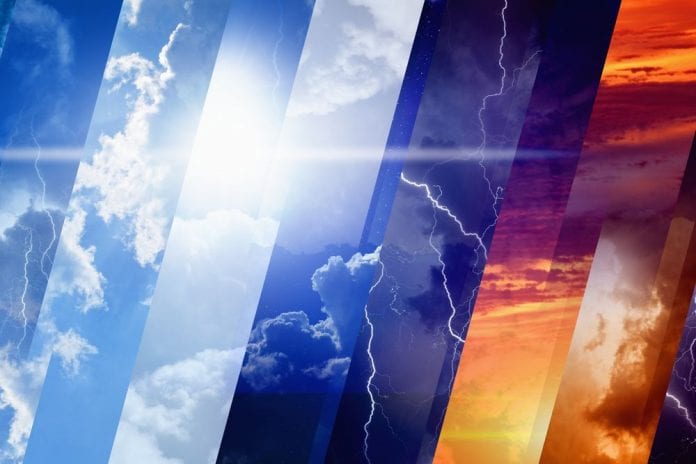No matter how confident you are with your TV and how much effort you put into installing the model you want, there are also situations that you are not always prepared for and that you cannot control. One of the main enemies of the reception is the weather.
The heavy rain, the thunderstorms that last for days all force us to spend our free time in the home atmosphere, usually with the TV on. However, it has certainly happened to you that while you are relaxing with your favorite TV program on your receiver you will see – interference. Weak reception or complete interruption.
Different weather conditions bring different problems, and you will probably want to be informed and prepared for it. Satellite or on the other hand, cable television – it doesn’t matter. When bad climates occur, any form of reception is compromised.
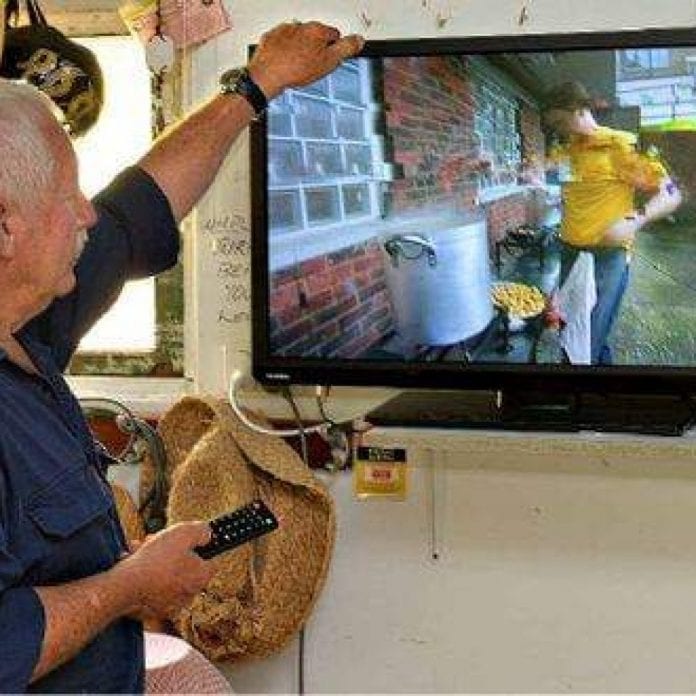
No matter how confident you are with your TV and how much effort you put into installing the model you want, there are also situations that you are not always prepared for and that you cannot control. One of the main enemies of the reception is the weather.
The heavy rain, the thunderstorms that last for days all force us to spend our free time in the home atmosphere, usually with the TV on. However, it has certainly happened to you that while you are relaxing with your favorite TV program on your receiver you will see – interference.
Different weather conditions bring different problems, and you will probably want to be informed and prepared for it. Satellite or on the other hand, cable television – it doesn’t matter. When bad climates occur, any form of admission is compromised.
Common problems
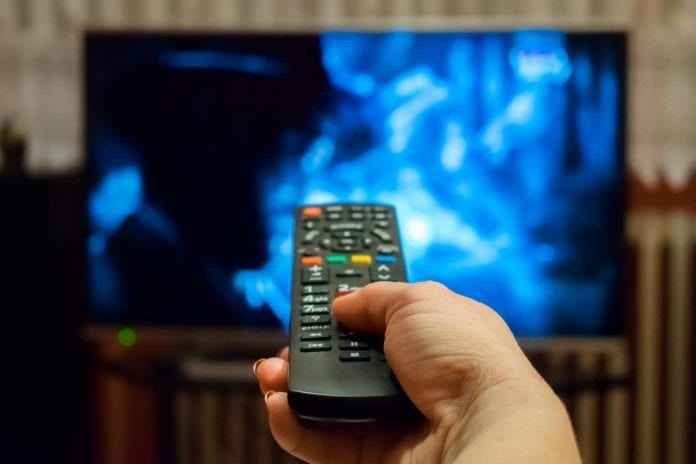
The crux of the problem is that the stability and quality of a television reception is highly dependent on reception conditions. In fact, even digital television of any format transmits all the same high-frequency radio waves.
It expands in the area of decimeters almost linearly and experiences considerable damping when passing through obstacles (scattered and absorbed). An illustrative example is the case when the reception in winter and summer is very different, when a tall tree with a dense canopy stands in the direction of the TV antenna, etc.
In times of inclement weather, due to the nature of the satellite itself, the quality of satellite signals over which certain television channels transmit through the operators is reduced. The reception of individual channels is transmitted to satellite or cable users via satellite links. Therefore, since the incoming signal received by the operators is not good, they are not able to provide it to the end-user.
However, what kind of weather can cause a problem?
Rain
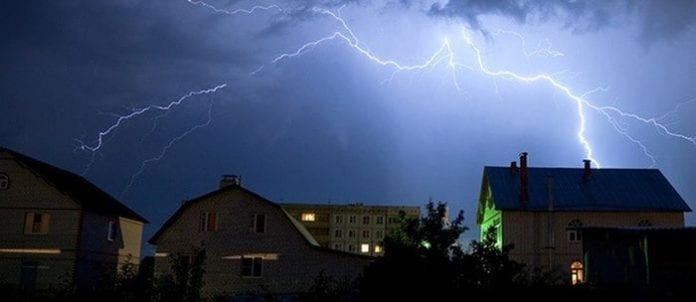
This is due to the fact that thunderstorms do not transmit radio waves and heavy rainfall greatly reduces the strength of reception. The fact is that moisture or, at the same time, snow increases the density of the atmosphere. And, moisture or snow is a natural barrier between a satellite-mounted transmitter and your receiving satellite dish.
In addition, water droplets on the transducer and the satellite dish mirror, such as optical lenses, make interference. As a result, all channels or only channels of the weakest transponders stop showing. Or the picture begins to break and fall into cubes.
Wind
The reasons for poor reception are the electrostatic charge of storm clouds. They block the signal from the satellite system and therefore the signal from the transmitter.
During a thunderstorm, the atmosphere becomes electrostatically charged (discharge = lightning), which interferes with the signal coming to the satellite dish. Rain also weakens the signal. Also, in the event of a storm, however, you should not only disconnect the electrical appliances but also disconnect them from the power supply, as lightning strikes can destroy the devices due to overvoltage.
A strong wind cannot hurt the signal. Over time, severe weather can loosen the screws, causing the pan to move (If satellite TV is concerned). You won’t notice anything at first. Over time, the parabolic mirror is no longer properly positioned. In this case, you need to call in professionals, such as Aerialexpress, to solve the problem by restoring everything to its original position.
Heat
Immediately upon arrival, summer is also a problem for many users. Quite a few populations, and especially those in warmer regions, have difficulty receiving channels due to the so-called Fading effect. This is even more annoying in coastal areas and due to the heat, a lot of water evaporates into the air on the sea surface.
In addition, in other areas of the land, heat hitting the ground creates different conditions. When a signal passes all that, it comes off very degraded. Also, there are other ones around you that, because of their different distances, cause echoes that overlap with similar ones.
When this happens, overlapping signals reach your receiver and it is unable to reconstruct a valid signal. Under normal conditions, the schedule and receptors are calculated so that no problems occur. However, when certain atmospheric conditions occur, this effect occurs and you receive signals from other receptors that are very far away and should not interfere with each other. As happens in conditions like that.
Winter
Satellite dish owners can have many problems in winter. Because snow and ice can cause image disturbances, the expert explains. At lower temperatures, rain or snow can freeze and interfere with reception. Due to foreign bodies, signals from the satellite are no longer reflected properly and thus never reach the receiving unit.
Analog systems generally have minor problems. In contrast, the image is rapidly disappearing with digital receivers. This effect occurs more quickly in smaller dishes 60 cm in diameter than in larger models. If the container is easily accessible on the balcony or next to the light window, it should be regularly cleaned of snow and ice.
This also applies to the receiving unit. It is actually made to withstand moisture. But plastic insulation can become brittle over time. Then the melting ice enters the device and triggers a malfunction there. In such cases, only the replacement of the LNB is helpful.
Tip: Pay attention to the well-insulated components and connectors when setting up the satellite system or, if in doubt, the help of insulation tape.
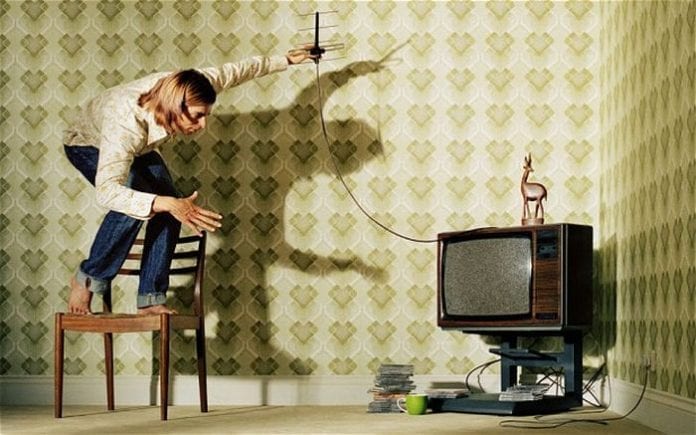
Conclusion:
We hope you don’t have problems with your TV, and if you do have them, don’t despair because there is a solution. Depending on the case, it will be sufficient to point the antenna towards the second tower. In others, significant investments need to be made and signal regenerators installed, and in the most extreme cases this will not be enough, and therefore experts will be tasked with taking measures to optimize reception conditions in the affected region.
